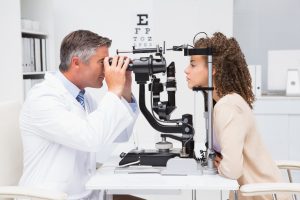 It’s unfortunate when your eyes don’t agree with your vision of the future. Fortunately, there may be ways to prevent them from losing focus.
It’s unfortunate when your eyes don’t agree with your vision of the future. Fortunately, there may be ways to prevent them from losing focus.
Eye health is closely tied to nutrition despite the lack of direct evidence. But there is a caveat: while nutritional preventative measures may help ward off conditions like cataracts and age-related macular degeneration (AMD), they cannot be reversed.
Advertisement
What are those conditions? Cataracts are the formation of cloudy areas in the lens of the eye that can make it a struggle to see. AMD causes vision loss in the macula—the center of the retina—which is essential to vision.
Antioxidants like vitamin A, C, E, and the mineral zinc may all help promote eye health. The retina, in particular the macula, are recognized as hotbeds of oxidative stress that need antioxidant protection.
Further, carotenoid antioxidants like lutein and zeaxanthin are found in large amounts in the retina. There is evidence that eating them can improve pigment density and help absorb damaging UV rays and blue light.
Omega-3 fatty acids are another nutrient to keep an eye on. DHA (docosahexaenoic acid), in particular, could be important to retinal health. It is found in large concentrations in the eye and is known to have anti-inflammatory properties.
You can get these nutrients by looking at brightly colored fruits and vegetables. If something is naturally yellow, orange, or green, you can almost bet it’s got something to support your vision.
Lutein and zeaxanthin are usually found right alongside each other and are featured in foods high in vitamin C. Some great sources include:
- Broccoli, Brussels sprouts, collard greens, oranges, nectarines, eggs, and spinach.
Advertisement
Zinc is found in red meat, yogurt, chickpeas, and oysters.
Omega-3 is in tuna, salmon, halibut, and walnuts.
Look to rainbow to keep vision intact as you get older. It’s probably the best way to guide your vision and protect eyesight.
